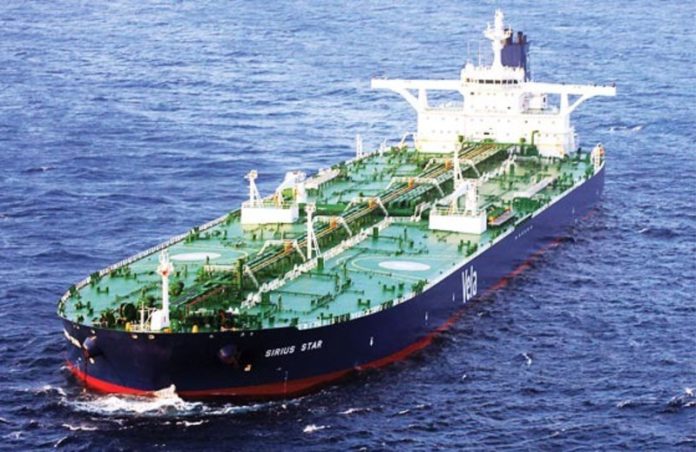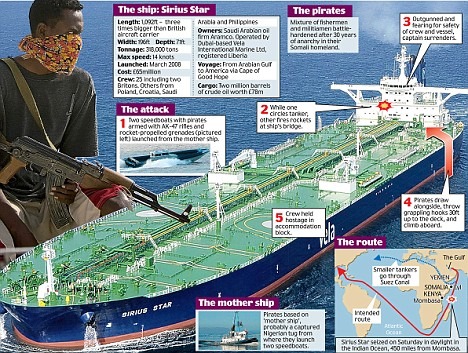
The Gulf of Guinea for many years has been one of the most lucrative routes for shipping lines within and outside of the West African sub-region. In fact, Ghana, Nigeria and Cote d’Ivoire, are the leading maritime commerce destination states attracting substantial shipping traffic.
The growing problem of maritime crimes within the seas of the sub-region has also seen governments initiating both diplomatic and security measures to deal with the issue. Here in Ghana, the Security Governance Initiative (SGI) which has a Secretariat under the ministry of national security was put together with the assistance of the United States government in a bid to curb the increasing activities of non-state actors like transnational organized criminal syndicate that operates across borders including land, air and until recently the sea.
The (SGI) Ghana office is strategically positioned to fashion out laws and legal frameworks that will make it easy to share intelligence on the movements of these criminal elements and how to successfully prosecute them in case they are arrested.
Led by the director of legal at the national security ministry, a number of headways have been chocked in a coordinated manner in dealing with the problem.
Until recently, the problem of transnational organized crime at sea had received only minimal attention. Referred to as ‘blue crimes’, their effects transcend the maritime domain into terrestrial spaces. Their consequences are often felt along coastal communities, and has a direct correlation to national security.
These crimes include trafficking of arms and light weapons, humans and narcotics, environmental crimes that are detrimental to various ecosystems, piracy and armed robbery at sea, and territorial crimes that breach the laws and rules governing territories and jurisdictions.
Over time, blue crimes have had negative consequences on the economic prosperity and wellbeing of individuals in coastal communities and more broadly, on the human security of coastal states along the Gulf of Guinea. These crimes are perpetrated by criminal elements, which operate in several coastal countries, with networks that often exceed the region, and with acts committed in more than one state’s territory and in this sense, these are transnational according to a research material authored by Kwesi Aning, Emma Birikorang, John Pokoo, Anna Naa Adochoo Mensah and Elsie A. Tachie- Mensah entitled- MARITIME INSECURITY IN THE GULF OF GUINEA: GHANA’S ACTUAL MARITIME CRIME PICTURE.

This very well researched material paints a vivid picture of the threats to the maritime sector in Ghana and quizzed to know, if the right mechanisms are instituted to tackle blue crimes in Ghana’s waters. Among some of the challenges Ghana is substantially impacted by these various manifestations of blue crimes includes acts of piracy, stowing away, human trafficking, narcotics trafficking and illegal importation of medicines, arms smuggling and illegal, unregulated and unreported fishing (IUU).
Ghana’s response to these crimes reflects the truncated preparedness of the entire coastal states along the Gulf of Guinea to deal with the multifaceted threats that confront the safety and security of the blue economy of the region.
Piracy costs African countries in the Gulf of Guinea over $500 million annually in what is currently the world’s maritime piracy hotspot.
With several attacks and kidnappings each year, much of that cost is tied not to the value of stolen ships or cargo but related to anti-piracy measures, according to a study by STABLE SEAS, a transnational maritime security research organisation.
For instance, every dollar pirates steal or extort from African victims, Gulf of Guinea governments spend around 524 dollars on counter-piracy efforts, the report says.
Oil theft was a lucrative business model that netted pirates up to $25 million a year in the early 2010s, but far more difficult to pull off versus the swift raids being conducted now.
Ransoms for non-African seafarers have climbed sharply in recent years, more than doubling from an average of 15,000 dollars per non-African hostage in 2014, to as much as 40,000 dollars in 2019. In comparison, West African fisher and oil worker ransoms have remained between 3,000-4,000 dollars or as low as 1,000 dollars per person.
These low direct costs to African nations have created the perception among some that Gulf of Guinea piracy and armed robbery are greater problems for international shipping companies and foreign seafarers than they are for African nations, STABLE SEAS noted.
But the perspective that Gulf of Guinea nations are not the primary victims is misguided, given that the direct monetary costs of operations by pirates piracy and armed robbers at sea are low compared to much higher costs of counter-piracy operations, increased security measures, and indirect financial losses as well as psychological tolls suffered by seafarers and fishers folks.
STABLE SEAS concludes that lost government revenue, which totals an estimated 1.4 billion dollars per year, is as much as double the best estimates of the direct costs of piracy paid by international navies, intergovernmental organisations, and the global marine transportation private sector each year.
The Gulf of Guinea borders 20 countries and is a key route for everything from steel to soda in a region that relies heavily on imports.
The report estimated the piracy costs of twelve nations, specifically the area that stretches from Cote D’Ivoire in the northwest to Angola in the southeast. This area accounted for 95 percent of the region’s piracy and armed robbery incidents over the last three years and 93 percent of all Gulf of Guinea incidents since 2010.
For three consecutive years, the Gulf of Guinea has been the world’s most dangerous shipping route. More than half of attacks at sea globally happen in a maritime territory that spans 2.5 million square kilometers.
The International Maritime Bureau (IMB) documented 195 piracy attacks in 2021, 32 more than the previous year.
In 2020, while Southeast Asia and the Gulf of Guinea saw nearly the same number of piracy incidents, 623 out of the world’s 631 seafarers (99 percent) kidnapped were working in the Gulf of Guinea.
However, the trend in 2021 has been promising, as piracy rates have shown an 80 percent decline during the first half of the year compared to the previous year, according to International Maritime Bureau (IMB) data.
The threat has mobilised various responses from governments within the West African sub-region. Nigeria for example, has initiated large-scale anti-piracy surveillance programs such as the Falcon Eye project, an Israeli-designed maritime domain awareness system manufactured by the UAE.
Nigeria’s Deep Blue project, a $195 million investment towards vessels, maritime domain awareness platforms, and land and sea assets, is the most significant commitment by any Gulf of Guinea country to date.
A decade ago, Somalia and the Horn of Africa was a global piracy hub.
That has largely been mitigated effectively through international coordination and multilateral action.
Significant among the recommendations captured in the report by the Aning led research- MARITIME INSECURITY IN THE GULF OF GUINEA: GHANA’S ACTUAL MARITIME CRIME PICTURE- includes the following;
Firstly it is important for Ghana and other Gulf of Guinea states and the international community to consider maritime security beyond piracy.
Maritime insecurity needs to be viewed holistically and the many different blue crimes that harm country’s economy and population considered.
Secondly, it is important to acquire a better understanding of how one blue crime relates to another and what effects a response to one crime has on the likelihood and opportunities of other blue crimes amongst others.
End.
